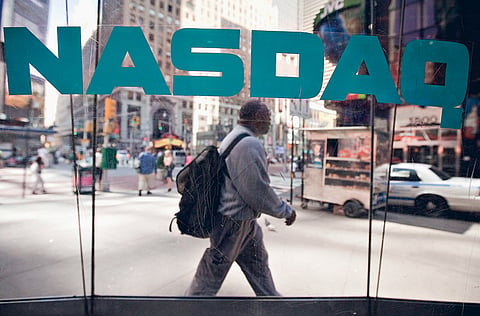Dotcom crash marks first decade
The internet offered great promise, but many pioneers went from boom to bust within 10 years

London: Wendy Tan settled back in her airline seat and sighed. Only a few months after sketching out plans for an internet business on her kitchen table with her friend Eirik Pettersen, she had raised millions of pounds from enthusiastic backers. Now she was on her way to San Francisco to raise even more.
It was January 2000, the height of the dotcom boom. Tan and Pettersen had helped build the website behind Egg, Britain's first internet bank, and were now striking out on their own.
Moonfruit, their new company, was intended to help people create their own websites and build online communities an early version of Facebook and MySpace.
Revenues and users were negligible, but Tan had already raised £5.4 million (Dh30 million) from investors who didn't want to miss the boat. The bulk came from Bernard Arnault, the LVMH luxury goods tycoon, who backed more than 50 internet start-ups through Europ@web, a venture fund.
"That was when it started getting out of control," Tan said. "For a company so young, it was too much money to absorb."
Unsustainable
It couldn't last. Moonfruit planned to finance its free software packages by selling advertising but there weren't enough firms willing to spend on campaigns, nor sufficient people online to make it worth their while.
By March 2001, 60 staff were sacked, including Tan's future husband and his mother, who had been helping out. "That was a very painful time," Tan said. As their dotcom dreams turned to dust, only she and Pettersen remained — once again around the kitchen table.
Tan's story was typical of the frenzy of the dotcom boom, which peaked 10 years ago. A generation of fresh-faced entrepreneurs were being given cash beyond their wildest dreams in a remarkable gold rush into cyberspace. The internet had arrived with the promise to revolutionise commerce at the click of a mouse. Being left behind was not an option.
Yet within months, their dreams crashed. The cash had been blown on launch parties and trendy office furniture. Business plans were crumpled.
Fast forward 10 years, and the internet is more pervasive than even its early pioneers thought possible.
Businesses built around e-commerce and social media such as Thetrainline.com, Tesco.com and Twitter are thriving after their forebears failed so spectacularly. Was it a case of right idea at the wrong time, or did the dotcom generation simply need to grow up and stop believing the hype to forge proper businesses?
The dotcom bubble officially burst a decade ago on March 10. That was the day the technology-heavy Nasdaq Composite index peaked in New York at 5,048.62 (today it is 2,238.26). Four days after Nasdaq topped out, the London market hit its own height.
Dotcom fever had already infected the adjacent sectors of telecoms and gadgetry. Regional telecoms carriers such as Thus and Kingston Communications as well as Psion, the handheld organiser-maker, were riding high in the Footsie.
On March 14, 2000, Lastminute.com, the online travel agent, floated. Its listing took place in a blaze of publicity, courting small investors to jump on the bandwagon. So many applied to invest (including this writer) that 180,000 private shareholders were limited to buying 35 shares each for £133. They would not see much of the money again.
Large nest egg
Led by the photogenic partnership of Brent Hoberman and Martha Lane Fox, Lastminute's other attribute was its speed. By beating the pack, it raised a £120-million nest egg that would ensure its survival.
Starved of cash as confidence in the technology revolution waned, hundreds of other companies bit the dust in the months that followed.
Rather than luck, Hoberman put their success down to originality and passion. "People who had a unique business model that captured the public's imagination, rather than just replicating something they had seen elsewhere, did well," he said. "So did management teams who weren't just obsessed with the idea of making money."
Lastminute sold out to Sabre Holdings, owner of Travelocity, an American rival, in 2005 for £577 million marking a 55 per cent loss for private investors.
For many businesses that didn't make it so far, it was a case of easy come, easy go.



